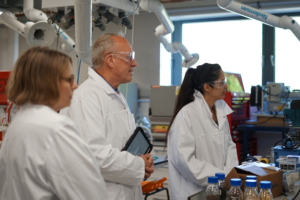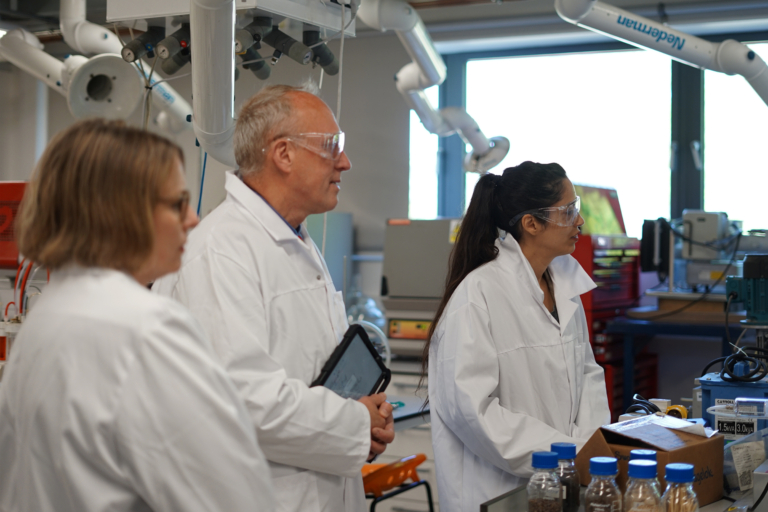Three specialist Biomedical Research Centres (BRCs) in the Midlands have received almost £80 million in funding from the National Institute for Health & Social Care Research (NIHR) to support life-changing research in cancer, mental health, diabetes, dementia and infectious diseases over the next five years.
Led by the Universities of Birmingham, Leicester and Nottingham, the NIHR BRCs have received a 10% share of £800 million, which has been awarded across 20 BRCs nationally – representing a significant uplift in investment into the Midlands.
The centres translate scientific discoveries into new treatments, diagnostic tests and medical technologies through partnerships. Working together across the Midlands, the centres lead a network of NIHR infrastructure called MHA (Midlands Health Alliance). This activity is supported by partners across the MI Health network (seven research intensive universities of Aston, Birmingham, Leicester, Loughborough, Keele, Nottingham and Warwick).
The funding has been allocated to allow research teams to partner with local NHS Trusts to deliver specialist biomedical research.
More than £30 million of funding has been granted to the NIHR Birmingham Biomedical Research Centre to support world-leading research into inflammation and associated diseases and health issues. The University of Birmingham is being supported by Keele and Aston Universities to deliver this activity.
A further £26 million awarded to the NIHR Leicester Biomedical Research Centre will strengthen research into long-term illnesses linked to respiratory conditions, cardiovascular disease, Type 2 diabetes, chronic kidney disease and the consequences of inactivity. This newly-established BRC is hosted by Leicester’s Hospitals, in partnership with the University of Leicester and Loughborough University.
A £23.3 million investment into the NIHR Nottingham Biomedical Research Centre will allow University of Nottingham research teams to work with Nottingham’s NHS Trusts accelerate the development of new treatments for common illnesses like asthma, Irritable Bowel Syndrome, depression and arthritis.
Professor David Adams, Pro-Vice-Chancellor and Head of College of Medical and Dental Sciences at the University of Birmingham and Board member of MI Health, said: “This multi-million-pound funding boost to three Biomedical Research Centres based in the Midlands is testament to the quality of translational research being undertaken by our university NHS partnerships across the region. The funding will allow us to develop and deliver new treatments that address areas of severe clinical need for our populations.”
ENDS
Notes to editors:
The NIHR awarded nearly £800 million to 20 Biomedical Research Centres across England. Read more
Leading on cutting-edge clinical trials, NIHR BRCs are partnerships help to attract the best scientists and create an environment where experimental medicine can thrive.
Over the past nine years, the BRCs have supported almost 60,000 studies and published 55,000 research papers, as well as supported the career development of more than 14,000






